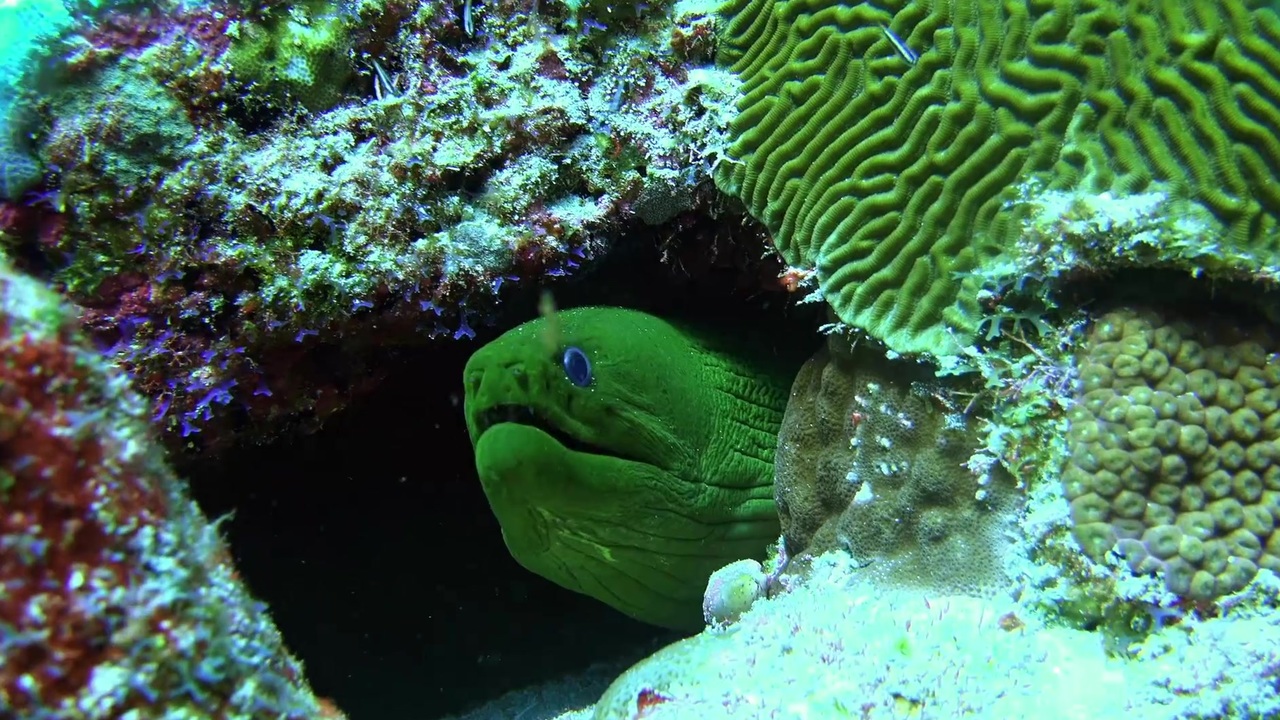
This series focuses on Earth's oceans, from coral reefs to the coasts. Along the way, we are introduced to a number of sea creatures, large and small, that dwell in these precious environments.
Difficulty:
 Intermediate
Intermediate
USA
The earth's bodies of water are the focus of this film about evolution. As the narrator points out, the vast depths of the earth's oceans remain barely explored.
Difficulty:
 Intermediate
Intermediate
USA
Corals are sessile animals, meaning they are immobile and anchored to one spot for the entirety of their lives. Stony coral, leathery coral, and sea fan coral are featured in this segment, along with the beautiful fish that inhabit coral reefs.
Difficulty:
 Intermediate
Intermediate
USA
Brilliantly colorful parrot fish and two-bar sea bream are among the fish featured in this segment. Sea cucumbers, the vacuum cleaners of all the Earth's oceans, also make an appearance.
Difficulty:
 Intermediate
Intermediate
USA
This segment looks at the advantages and disadvantages of swarm fish and loner fish, providing insight into their coloration and behavior. Spectacular footage reveals twobar sea bream, trumpet fish, barracudas, and harlequin sweetlips.
Difficulty:
 Intermediate
Intermediate
USA
Green sea turtles (the largest hard-shelled sea turtle) and whale sharks (the largest shark and fish overall) are featured in this segment. We also encounter a langouste, otherwise known as a rock lobster, and a moray eel lurking in their coral reef habitat.
Difficulty:
 Intermediate
Intermediate
USA
We learn about the thousands of kilometers that humpback whales travel from their summer habitat in the polar regions to the tropical or subtropical waters where they spend the winter. Their multi-versed songs and the markings on their flukes are also discussed.
Difficulty:
 Intermediate
Intermediate
USA
Marine mammals are the focus of this segment on coastal sea life. Humpback whales mostly swim along the coasts, whether in the Northern or Southern Hemisphere. Seals are semi-aquatic and try to stay as close to the coast as possible, though they'll search for prey in depths of up to forty meters.
Difficulty:
 Intermediate
Intermediate
USA
California sea lion communication, mating habits, and past and present threats to their survival are discussed. This segment additionally features amazing aerial photography of their rocky coastal habitats.
Difficulty:
 Intermediate
Intermediate
USA
The video starts with information about coastal geology and the evolution of birds. It includes amazing footage of white storks, wildebeest, as well as zebras in East Africa's Serengeti region.
Difficulty:
 Intermediate
Intermediate
USA
The focus of this segment is on animals of the African savanna. We get to see giraffes and elephants, the largest of the land creatures, as well as cheetahs, the fastest.
Difficulty:
 Intermediate
Intermediate
USA
Rhinoceroses, or rhinos for short, are the largest land animals after elephants. Five species remain (two in Africa and three in Asia) and all are endangered as a consequence of the illicit trade of their horns. The importance of rivers is another focus of this segment.
Difficulty:
 Intermediate
Intermediate
USA
The series draws to a close with footage of apes, the most direct ancestors of humans. The narrator nicely sums up the meaning of evolution and man's place in nature.
Are you sure you want to delete this comment? You will not be able to recover it.